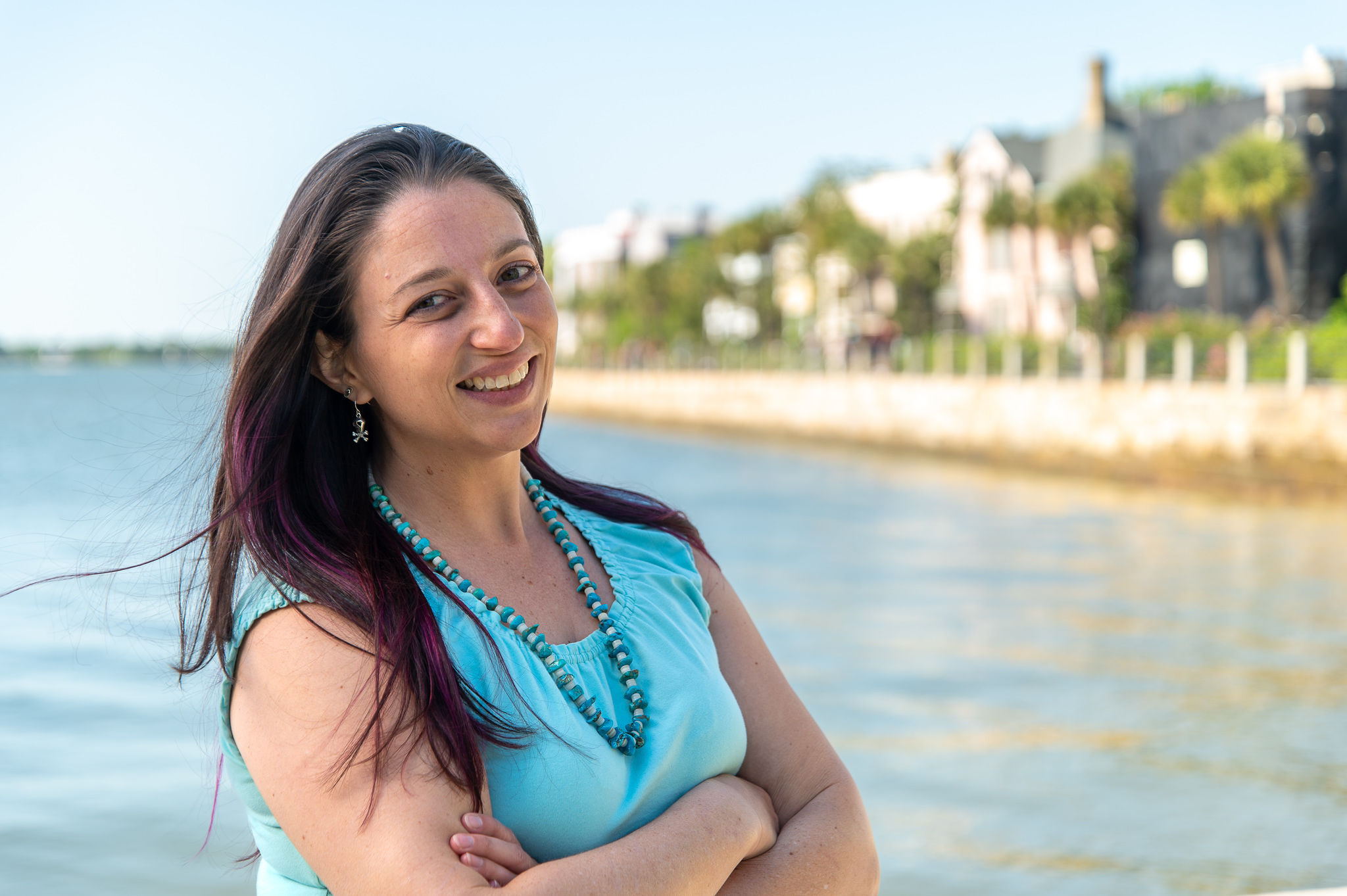Carin Bloom is a public historian, researcher, and programming consultant in Charleston, SC. Carin holds an Honors BA, two MAs, and a PhD ABD in Anthropology, all with specializations in Historical Archaeology (specifically Fields of Conflict of the American Revolution). She is an archaeologist and public historian by training, specializing in the history of the 18th century in America. Her passion over the past two decades has been sharing the hidden histories of the Colonial era with interested audiences through conventional and unconventional programs and exhibits. Bringing diverse narratives to light that have long been ignored is a particular focus of hers, whether through field trips for K-12 students, educational events with learners of all ages, or first- or third-person living history presentations. One of her most popular 21+ programs, Colonial Cocktails, explores the drinking habits of early American colonists, and includes mixology and tasting of some historic recipes – get in touch to book this program for your group!
Carin is also skilled and trained in academic research and interpretive narrative writing, with experience helping sites create strategic plans for their oversight organizations. She is happy to be contacted for consultation on strategic planning, interpretive master planning, site narrative focus/direction, educational programs, and scholarly lectures. Carin has been published in Women Waging War in the American Revolution – a volume compiled and edited by Holly Mayer and published by the University of Virginia Press in 2022. Carin’s work on self-emancipated Lucy Banbury was an important contribution to the volume, and has been a popular lecture for historic sites, the Sons and Daughters of the American Revolution, and friends’ groups supporting county and state parks across the Southeast. She is available for lectures on various topics in historical research and best practices in museums and cultural heritage sites management.
Carin believes that immersive experiences help history come alive for those interested in looking into the past – and for living history, presenting in character is a highly effective catalyst. Carin focuses on lesser-known historical figures; those whose stories have not been told in the past have still made important contributions. She offers living history general presentations as a female entrepreneur (wine merchant), a licensed petty sutler to the armies of the American War for Independence, and as an early 18th century Jewish emigrant to the southern colonies – a lower-class woman who resells used clothing, shoes, and notions. Additionally, Carin presents as Loyalist refugee from 96 District, SC, Margaret Chesney, and as Catharine Littlefield Greene, wife of General Nathanael Greene of the Continental Army. Both stories insert much-needed women’s history into the story of the American War for Independence, as well as bring to light some of the harsh realities of the conflict that are often left out in favor of the triumph and tragedy of great battles won and lost. Carin is delighted to bring humor, sorrow, and inquisitiveness to her presentation, considering deeply what Mrs. Chesney or Lady Greene might share with an audience, were they alive today.
About

